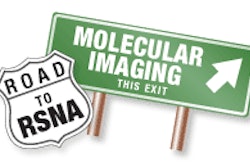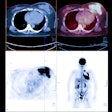Tuesday, November 30 | 10:30 a.m.-10:40 a.m. | SSG12-01 | Room S505AB
PET/CT is superior to high-resolution CT alone, particularly regarding sensitivity, in cases of head and neck squamous cell carcinoma (HNSCC), according to a study by researchers from Mount Sinai School of Medicine in New York City.The study, scheduled for presentation at RSNA 2010 on Tuesday, also found that nearly half of cancer recurrences occurred within five months of the end of therapy. The results suggest that early aggressive surveillance is necessary to detect and treat these recurrences in a timely manner.
Previous research has shown that one-third of patients with HNSCC can relapse within two years even with aggressive therapy. Several preliminary studies suggest that PET/CT yielded higher sensitivity than high-resolution CT; however, the performance of PET/CT in the early detection of relapse has not been well investigated.
A total of 462 PET/CT examinations were performed on 99 patients with head and neck squamous cell carcinoma between June 2005 and January 2010 following definitive therapy. All patients were followed with clinical examination, endoscopy, PET/CT, and CT with a median of four follow-up scans.
Researchers were able to confirm through pathology the recurrence of cancer in 19 patients. Among the 19 cases, 10 patients had locoregional recurrence, six patients experienced distant metastases, and three patients had both locoregional and distant recurrence. Nine patients had a recurrence of the disease within five months of therapy completion; 13 experienced recurrence within 12 months.
Results will be presented in Chicago by Srikar Rao, a medical student at Mount Sinai School of Medicine.




















